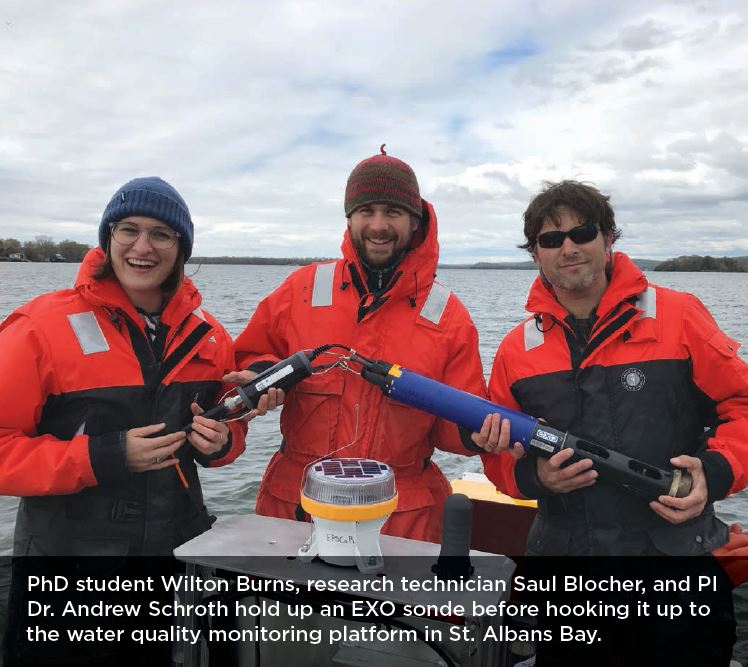Vermont EPSCoR was awarded a new Research Infrastructure Improvement (RII) Track-1, $20M award on June 1, 2016 for research on Lake Champlain Basin Resilience to Extreme Events (BREE). The research will inform public policy and support economic and workforce development. Research questions examine what makes some parts of the Lake Champlain Basin and its watersheds resilient in the face of extreme weather events, increasingly common in a warming Vermont, while other parts fail to recover and rebound. The award from the National Science Foundation will help answer those questions, providing much needed information to decision-makers as they govern the basin and develop policies that reach far into the future. The five-year project will support research teams from UVM and colleges across the state that will collect data from sensors in streams, soil, and the lake. Research teams will also gather information on land use, economic impacts of poor water quality, and more. Seven social and ecological computer models that are calibrated our collected data will be linked together. The resulting integrated model will used to test impacts of management scenarios on Lake Champlain water quality, and can identify strategies for preserving infrastructure, environmental health and drinking water quality as Vermont’s landscape continues to change and the climate continues to show a rise in extreme precipitation.

- The project will be undertaken by a diverse group of scientists and stakeholders working together with Vermont EPSCoR. In addition to UVM, other partner institutions include Johnson State College, Lyndon State College, Castleton State College, Middlebury College, Saint Michael’s College, and Dartmouth College. Also participating in the project will be key stakeholders, including the Lake Champlain Basin Program and the Vermont Agency of Natural Resources and partners from Quebec and Lake George, NY.
- Since June 2016, BREE has engaged 208 Vermont participants, which includes 22 new jobs and 35 Private sector awards. Partners from six Vermont institutions (University of Vermont, Saint Michael’s College, Middlebury College, Castleton University, Lyndon State College/NVU-Lyndon, and Johnson State College/NVU-Johnson), are also major stakeholders.
- NSF made the award to Vermont EPSCoR partly because both natural and social scientists work together across disciplines on the project in creating their predictive models.
- The BREE award was announced at the White House Water Summit on World Water Day, March 22, 2016.
- A key element of the award is work performed by the Vermont EPSCoR Center for Workforce Development and Diversity at Saint Michael’s College (CWDD), which offers research opportunities to Vermont high schools, middle schools and undergraduates from across Vermont, including the Community College of Vermont and a new partnership with Landmark College.
- Scholarships are available to Abenaki students and first-generation college students who are seeking science, technology, engineering or mathematics (STEM) majors.
- Girls are supported through the Vermont Works for Women, Rosie’s Girls Program.
- Small businesses are able to participate through pilot awards and funding from the Small Business Innovation Research Phase (0) program and support through Launch VT.

